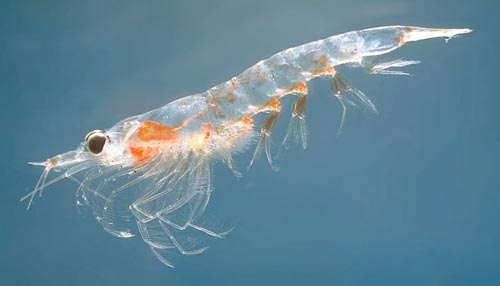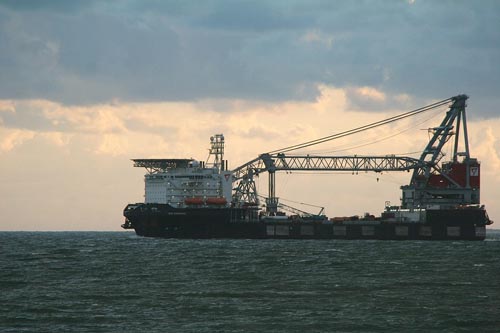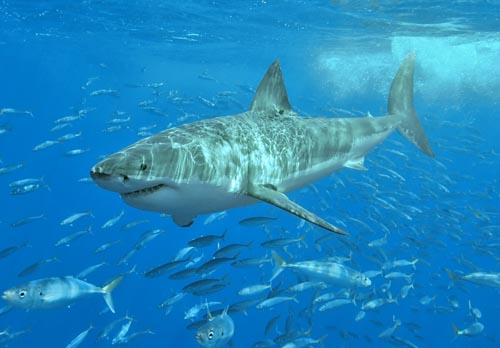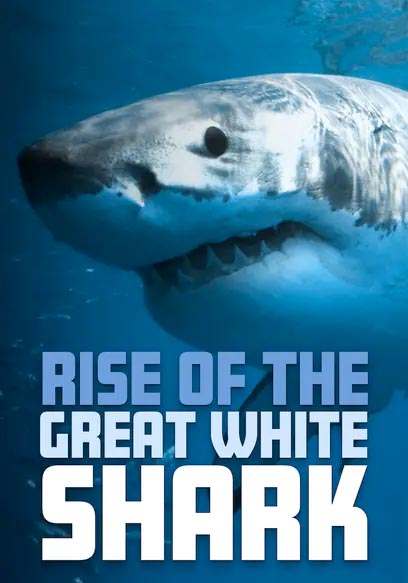 | | |  As March unfolds, the grip of winter loosens, and the promise of spring emerges. Warmer days invite us back to the coastlines, where the ocean remains a source of wonder and a reminder of the urgent need for conservation. This month, we examine the shifting tides – both in nature and in policy – affecting marine life, coastal communities, and the future of our planet’s waters. As March unfolds, the grip of winter loosens, and the promise of spring emerges. Warmer days invite us back to the coastlines, where the ocean remains a source of wonder and a reminder of the urgent need for conservation. This month, we examine the shifting tides – both in nature and in policy – affecting marine life, coastal communities, and the future of our planet’s waters.
The fight to protect the ocean faces mounting challenges, as recent political decisions threaten progress in conservation and research. President Trump’s sweeping cuts to ocean science and regulatory agencies have sparked concern, with NOAA scientists dismissed from critical roles, and marine sanctuary proposals in Florida facing vetoes. The future of whale conservation, offshore wind development, and marine protection now hangs in the balance, as these decisions shape how the U.S. engages with its vast coastal and ocean ecosystems.  Despite these setbacks, conservation efforts continue to yield success stories. New analysis reveals that most sea turtle populations are rebounding, thanks to decades of habitat protection and nest conservation. Meanwhile, krill – an essential food source for much of marine life – remains a focal point for protection, ensuring the stability of oceanic food webs. Marine education is evolving as well, with creative initiatives like Minecraft simulations and mobile tide pools bringing ocean literacy to new audiences. In the Gulf of Mexico, the expansion of artificial reef projects marks a major milestone in marine habitat restoration, while researchers celebrate the discovery of 866 new marine species, including the elusive guitar shark. Despite these setbacks, conservation efforts continue to yield success stories. New analysis reveals that most sea turtle populations are rebounding, thanks to decades of habitat protection and nest conservation. Meanwhile, krill – an essential food source for much of marine life – remains a focal point for protection, ensuring the stability of oceanic food webs. Marine education is evolving as well, with creative initiatives like Minecraft simulations and mobile tide pools bringing ocean literacy to new audiences. In the Gulf of Mexico, the expansion of artificial reef projects marks a major milestone in marine habitat restoration, while researchers celebrate the discovery of 866 new marine species, including the elusive guitar shark.  Plastic pollution remains one of the ocean’s most persistent threats, but solutions are emerging. Scientists in Norway are developing biodegradable fishing gear to combat the ghost nets that entangle marine life, while grassroots movements – led by an all-female team of divers nicknamed “mermaids” – work tirelessly to remove as much plastic debris from the sea as possible. However, large-scale pollution events, such as the North Sea oil tanker collision, serve as stark reminders of how human activities continue to endanger ocean ecosystems. While plastic bag bans have been touted as a solution, some experts argue for more effective policies that address the root causes of ocean pollution. Plastic pollution remains one of the ocean’s most persistent threats, but solutions are emerging. Scientists in Norway are developing biodegradable fishing gear to combat the ghost nets that entangle marine life, while grassroots movements – led by an all-female team of divers nicknamed “mermaids” – work tirelessly to remove as much plastic debris from the sea as possible. However, large-scale pollution events, such as the North Sea oil tanker collision, serve as stark reminders of how human activities continue to endanger ocean ecosystems. While plastic bag bans have been touted as a solution, some experts argue for more effective policies that address the root causes of ocean pollution. Coastal communities face growing environmental justice concerns. A new study links ocean plastic pollution to increased disability risks for residents of affected regions, highlighting the human toll of marine debris. On the West Coast, the National Ocean Science Trust has launched an ambitious action agenda to address ocean health challenges, while marine centers in California are overwhelmed as the amount of stranded sea lions and dolphins increase in tandem with worsening environmental conditions. In climate news, rising sea levels and record-breaking ocean temperatures continue to accelerate, serving as a dire wake-up call. A recent study warns that the Earth’s strongest ocean current could slow by 20% by 2050 if emissions remain high, potentially disrupting global climate patterns. Meanwhile, hurricanes, often seen as destructive forces, may also play a surprising role in helping the ocean absorb carbon, revealing the complexity of climate interactions. The renewable energy sector faces new hurdles, as offshore wind projects encounter legal roadblocks and regulatory delays, underscoring the need for continued investment in sustainable ocean energy solutions. Fisheries and sustainability efforts are also under scrutiny. While Louisiana’s menhaden industry highlights responsible fishing practices, proposed bans in key fishing areas have sparked heated debates. Economic pressures mount for American fishers, as policy shifts and declining fish populations challenge their livelihoods. With some of the most overfished species in the U.S. reaching crisis levels, experts warn of the broader consequences for both human health and marine biodiversity.  This month, we also celebrate ocean storytelling and discovery. The 12th Annual Photo Competition for UN World Oceans Day offers a platform to showcase the beauty and fragility of marine environments. This issue’s featured film, Rise of the Great White Shark, explores how these apex predators have evolved over millions of years, shaping ocean ecosystems. For those drawn to the world beneath the waves, our recommended read, Lady With a Spear, chronicles the pioneering work of ichthyologist Eugenie Clark, whose passion for marine life led to groundbreaking discoveries. This month, we also celebrate ocean storytelling and discovery. The 12th Annual Photo Competition for UN World Oceans Day offers a platform to showcase the beauty and fragility of marine environments. This issue’s featured film, Rise of the Great White Shark, explores how these apex predators have evolved over millions of years, shaping ocean ecosystems. For those drawn to the world beneath the waves, our recommended read, Lady With a Spear, chronicles the pioneering work of ichthyologist Eugenie Clark, whose passion for marine life led to groundbreaking discoveries. As spring arrives, it’s a time of renewal – not just for the natural world, but for our collective commitment to protecting the ocean. Let’s move forward with urgency, curiosity, and hope, ensuring that the waters we cherish remain vibrant for generations to come. | | | | | | | |  RCC Presidential Fellow – Jack Sanitate RCC Presidential Fellow – Jack Sanitate
RCC Presidential Fellow, Jack Sanitate, is a senior at Duke University double majoring in Public Policy and Theater Studies, with a minor in Environmental Sciences & Policy. Jack serves as the co-lead of the RCC Coasts and Ocean program with Bob Musil and editor of the RCC Coasts and Ocean Observer. | | | | | | Trump Cuts Swathe Through Ocean Science and Conservation A seemingly continuous series of budget cuts and firings from the US government have left those working on ocean issues reeling in the wake of the inauguration of Donald Trump as president. Since taking power on 20 January, Trump and his ally, the tech-billionaire Elon Musk, have overseen swingeing cuts to the workforces of key federal bodies, and slashed overseas and domestic funding for research and aid projects. Critics say this has caused huge harm to global health and the environment. | | | | | | | | Trump Fires NOAA Scientists Helping Whales and Offshore Wind Coexist The Trump administration axed hundreds of employees at the National Oceanic and Atmospheric Administration, one of the key agencies tasked with making sure offshore wind activities can coexist with wildlife, including whales. The firings on Thursday affected more than 800 federal employees, The New York Times reported. Many of NOAA’s roughly 13,000 staff members famously provide the nation’s weather forecasting services. | | | | | | | | Florida Governor Vetoes NOAA Plan For Marine Sanctuary The NOAA blueprint will expand the 3,800-square-mile sanctuary in the Florida Keys and implemented measures to protect its highly threatened coral reef ecosystem. An uncertain future awaits one of the nation’s most fragile marine protected areas after Florida Gov. Ron DeSantis vetoed a NOAA management blueprint finalized by the Biden administration that imposed new rules on state-owned waters within the Florida Keys National Marine Sanctuary. | | | | | | | | Most Sea Turtles Rebounding Worldwide as Conservation Efforts Protect Nests and Habitat, Analysis Finds Once hammered by overhunting and habitat loss, sea turtles have persevered with new protections and conservation efforts. Their populations are now rebounding even as oceans change, a new review has found. “Sea turtles are a shining light of marine conservation with recoveries of many nesting populations,” said Graeme Hays, Distinguished Professor and Chair in Marine Science at Deakin University in Australia. | | | | | | | | Protecting the Oceans Vital Food Source: Krill Krill may be small, but their impact on the ocean ecosystem is enormous. These tiny crustaceans, resembling shrimp, are the foundation of the marine food web, supporting countless species, from the largest whales to the smallest fish. Yet, they are under threat from industrial fishing, driven largely by the growing demand for omega-3 supplements. At Sea Shepherd, we recognize the vital role krill play in maintaining ocean health, which is why we’re fighting to protect them. | | | | | | | | Minecraft and Mobile Tide Pools Help Close Gaps in Ocean Education Stanford marine scientists are using innovative projects to broaden the public’s appreciation for the ocean and inspire action to protect it. The ocean produces half of Earth’s oxygen, supports millions of livelihoods, supplies billions of people with a vital source of animal protein, and absorbs excess heat and carbon dioxide caused by burning fossil fuels. Even the internet relies on underwater networks that span the salty depths. | | | | | | | | RGV Reef Expands Marine Conservation Efforts With Historic Deployment On Feb. 25, Friends of RGV Reef marked a significant moment in its ongoing mission to restore and protect marine life in the Gulf. In honor of the late Gary Glick, a key leader in the creation of Friends of RGV Reef, the organization deployed the largest vessel ever introduced to the reef—a 110-foot-long ship that will serve as a thriving habitat for marine life. This event not only paid tribute to Glick’s enduring legacy, but also reinforced the need for community support to sustain and expand the reefing project. | | | | | | | | For the Love of Sharks Ahead of International Women's Day on 8 March, we partnered with Women In Ocean Science to share some inspiring stories by women who work in marine biology, marine sciences and other related fields to elevate their voices. Here, we chat to Dr Jodie Rummer, a marine biologist specialising in fish physiology and adaptation to climate change. With Physioshark, she currently investigates how climate change impacts the physiology of newborn and juvenile reef sharks. | | | | | | | | | | "Guitar shark" and Snail With Venomous "harpoons" Among 866 New Marine Species Discovered in Ocean Over 800 marine species were newly discovered after two years of collaborative efforts by scientists, governments, museums and others participating in the Ocean Census, a global alliance founded to accelerate the discovery of marine life. New species of shark, sea butterfly, mud dragon, bamboo coral, water bear, octocoral, and shrimp were just some of the findings that were registered in a directory after the collaborative conducted 10 global expeditions. | | | | | | | | Scientists in Norway Explore Biodegradable Fishing Gear to Tackle Plastic Pollution in the Ocean To combat ocean plastic pollution, scientists in Norway are developing biodegradable fishing gear that naturally degrades without releasing harmful microplastics. They aim to replace conventional synthetic ropes, nets, and lines – materials that can remain for centuries, entangling marine life and disrupting ecosystems. Lost and discarded fishing gear, known as “ghost fishing gear,” is a major contributor to plastic pollution in the ocean. | | | | | | | | North Sea Collision Plastic Pollution Clean-up is a "race against time" An operation to retrieve thousands of plastic pellets spilled into the North Sea following an oil tanker collision has become a 'race against time' as authorities aim to clear pollution before tides turn and it's washed back into the food chain. An operation to clean-up thousands of plastic pellets that have appeared in the North Sea in the wake of a collision last week between a US oil tanker and a cargo ship has become “a race against time.” | | | | | | | | As Ghost Junk Haunts the Sea, ‘mermaids’ Are Fighting Back Sitting on the side of a small boat off the coast of Baja California, suited up in diving gear, a group of 10 women prepared to descend into the chilly waters. Abandoned fishing lines, nets and traps are a pervasive and deadly threat to the world’s oceans, smothering coral reefs and ensnaring marine animals. According to one estimate, nearly a third of fishing lines are lost or discarded at sea. Experts estimate that more than 300,000 whales and dolphins die each year after getting tangled in them. | | | | | | | | Opinion: Plastic Bag Bans Don’t Help the Ocean - There Are Better Solutions We don’t want plastic in the ocean. Most plastic degrades slowly and we have all seen pictures and videos of marine life being harmed by plastic. While many environmental issues are controversial, this one isn’t. The simple goal of keeping plastic out of the ocean — which I share completely — is what drives some politicians to support banning plastic grocery bags. It would appear that plastic bag bans are tailor-made for government intervention. | | | | | | | | Biologging: Animals Are Recording Human Impact on the Ocean Biologging sensors attached to animals help researchers collect valuable data about marine environments. This data helps monitor human activities, such as fishing, pollution, and noise disturbances from boats and construction, providing insights into their impact on marine life. A recent study from Kobe University highlights the importance of integrating data from different sources to create an “Internet of Animals” with open-access standards. | | | | | | | | Fear of 'environmental harm' After North Sea Oil Tanker Collision Amid concerns for the safety of those affected by a collision in the North Sea yesterday between an oil tanker carrying US jet fuel and a cargo ship transporting sodium cyanide, environmental organisations have voiced strong fears over the long-term impact a resultant oil and chemical spill will have on the environment. According to publicly available data, the collision is likely to have occurred in or near two essential marine protected zones within the area. | | | | | | | | Ocean Plastics Linked to Disability Risks For Coastal Residents Tiny plastic particles in coastal waters may be linked to higher rates of disabilities that affect thinking, movement, and self-care, according to a preliminary investigation. This research examined regions with elevated levels of marine microplastics and observed a greater prevalence of functional limitations in local populations, though the study does not prove a direct cause-and-effect relationship. | | | | | | | | National Ocean Science Trusts Launch West Coast Ocean Science Action Agenda Two ocean science trusts in the United States have joined forces to launch a major initiative to generate new and significant strategic investments in West Coast ocean and coastal science and research and monitoring. The “West Coast Ocean Science Action Agenda,” the handiwork of the California and Oregon Ocean Science Trusts, is intended to provide the science needed to address serious ocean and coastal challenges West Coast states are facing in the coming decade. | | | | | | | | Protecting Our Ocean Protects Human Rights Today in Geneva, Switzerland, the United Nations Special Rapporteur on the human right to a clean, healthy, and sustainable environment will present to the Human Rights Council on the important relationship between the ocean and human rights. Special Rapporteur Astrid Puentes Riaño published the UN’s first report on the ocean and its interconnection with human rights in December 2024, after gathering submissions from governments around the world and over 60 Indigenous Peoples’ and civil society organizations, including Earthjustice. | | | | | | | | Marine Center in ‘crisis mode' After Sea Lions and Dolphins Left Stranded on LA Beaches An increase in toxic algal bloom has caused the Marine Mammal Care Center to near maximum capacity as it responds to nonstop calls each day. Sea Lions are not the only animals being affected by the bloom. Beginning last week, dolphins have also washed ashore from Long Beach to Malibu coasts, according to the Marine Mammal Care Center (MMCC). | | | | | | | | How Hurricanes Help Oceans Fight Climate Change Hurricanes cause extensive damage on land and to offshore platforms – effects that scientists understand well. However, their impacts on deep ocean environments remains largely unexplored. These storms stir up ocean layers, influencing marine ecosystems in ways that are difficult to study. | | | | | | | | Ocean Energy Is Almost Ready, But It Needs a Boost Over the Testing Barrier In a large room with concrete-block walls, a crane lifts what looks like a miniature lunar lander out of a water tank. Water drips from the metal contraption as the crane slowly lowers it onto the floor. Then, the clock starts ticking. "My colleagues and I were like, ‘OK, as soon as it touches the ground, were going to do this and this and this," said Brittany Lydon, a mechanical engineering graduate student at the University of Washington. | | | | | | | | Global Sea Level Rose Higher Than Expected Last Year. Here’s Why. The rate of global sea level rise follows a trend of rapidly increasing rates over the past 30 years. Oceans last year reached their highest levels in three decades — with the rate of global sea level rise increasing around 35 percent higher than expected, according to a NASA-led analysis published Thursday. The unexpected rise in global levels is concerning, particularly as an indicator for what to expect around coastal cities, many of which are already experiencing more damaging flooding. | | | | | | | | EPA Withdraws Permit for Atlantic Shores Offshore Wind Project The US Environmental Protection Agency (EPA) is reviewing the air quality permit for the Atlantic Shores offshore wind project, following a remand from the federal Environmental Appeals Board regarding the EPA’s initial permit decision. The permit, which was granted to the developer in September 2024, was appealed to the board by Save Long Beach Island (SLBI), a group of local residents who oppose the offshore wind project proposed to be built off New Jersey. | | | | | | | | US Offshore Wind Projects Hit by New Lawsuits and Delays, But Construction Is Not Halted Federally permitted offshore wind energy projects in New Jersey, Massachusetts and Virginia have been hit in recent days by new legal actions in the wake of new Trump Administration energy politics—but Virginia's mammoth 2.6-GW project has marked a key construction milestone and is on track for completion at the end of 2026. In New Jersey, a U.S. Environmental Protection Agency administrative appeals board judge has invalidated the agency air pollution permit for the Atlantic Shores offshore wind energy project. | | | | | | | | Earth’s Strongest Ocean Current Could Slow Down by 20% by 2050 in a High Emissions Future In a high emissions future, the world’s strongest ocean current could slow down by 20% by 2050, further accelerating Antarctic ice sheet melting and sea level rise, an Australian-led study has found. The Antarctic Circumpolar Current – a clockwise current more than four times stronger than the Gulf Stream that links the Atlantic, Pacific and Indian oceans – plays a critical role in the climate system. | | | | | | | | Record Sea Levels, Ocean Heat, CO2 Concentrations in 2024 a ‘Wake-Up Call’ For Humanity, Warns UN Weather Agency This is the grim picture emerging from a new report from the UN weather agency, which looked at changes in climate trends over the course of 2024, the hottest year on record. These “distress signals” are “clear signs” of the impacts of human activities on our climate and environment, with some consequences deemed “irreversible over hundreds if not thousands of years,” the World Meteorological Organization’s (WMO) new State of the Climate report concluded. | | | | | | | | Sustainable Fishing: How Louisiana’s Menhaden Industry Protects the Gulf For generations, Louisiana’s menhaden fishing industry has supported small coastal communities and harvested a sustainable resource while employing responsible fishing practices that protect the Gulf’s ecosystem. Through science-based management, innovative technology, and strict regulations, we ensure that menhaden remains abundant for future generations. The commercial menhaden fishery uses the purse seine method, a specially designed technique that minimizes environmental impact. Here’s how the process works. | | | | | | | | Government Proposes Controversial Fishing Ban in Popular Bay: 'A major threat to the fisheries' In a proactive move to safeguard marine biodiversity, Hawaiʻi's Department of Land and Natural Resources (DLNR) has introduced new regulations targeting fishing practices in Maunalua Bay. These measures aim to protect critical marine life, create a Fisheries Management Area, and establish long-term sustainable fishing within Maunalua Bay. | | | | | | | | DOGE Cuts Hit American Fishermen Hard: 'I'm Scrambling' Commercial fishermen across the U.S. say that the federal funding they relied on to upgrade to lower-carbon emission systems has been frozen or rescinded due to budget cuts by President Donald Trump's Department of Government Efficiency (DOGE). The cuts impact funding for replacing outdated diesel engines and at-sea refrigeration systems—projects that environmentalists argue would reduce the seafood industry's carbon footprint. | | | | | | | | The Most Overfished Fish In The U.S. & Why It’s A Disaster For Our Health And Planet Bluefin tuna is one of the most sought-after fish species in the world, but unfortunately, its popularity has led to severe overfishing. Known for its tender and flavorful meat, bluefin tuna is a favorite in sushi restaurants, fetching high prices. According to the National Oceanic and Atmospheric Administration (NOAA), bluefin tuna populations have drastically declined due to overfishing and illegal fishing activities. | | | | | | | | 12th Annual Photo Competition for UN World Oceans Day DPG is pleased to announce the opening of the 12th annual Photo Competition for UN World Oceans Day, surrounding the 2025 theme, “Wonder: Sustaining What Sustains Us.” Complementing the UN’s World Oceans Day celebration preceding the UN Ocean Conference in Nice, France, this year’s competition draws on the power of the arts to expand our perspectives and appreciation for our blue planet, and ignite a wave of action towards necessary change. | | | | | | | |  Rise of the Great White Shark – 2017 Rise of the Great White Shark – 2017
Synopsis on Prime Video: “This film traces the rise of the Great White Shark over the past 11 million years From its beginnings in an age dominated by giant ocean predators white sharks evolved in tandem with seals and other pinnipeds in response to a steadily cooling climate. This film is the result of a decade of filming white sharks by renowned cameraman Andy Casagrande.”
Synopsis on Tubi: “With spectacular footage, this film takes an in-depth look into the specific events and adaptations that have helped sharks dominate the sea.” | | | | | |  Lady With a Spear Lady With a Spear
Overview: “This delightful book is a young scientist's (icthyologist) informal report on her career in the marine world - a career that took her to the tropical waters of the Red Sea and the Pacific and Atlantic Oceans.”
More in-depth Overview on Shepherd.com: “Eugenie Clark, who received her Ph.D. in 1951, was one of the first women to do independent field work in ichthyology. In this youthful memoir, she describes her childhood excursions to Manhattan's old Aquarium, and the development of her education and her career specialty - plectognaths, the family that includes the blowfish, puffer, triggerfish, and other (sometimes poisonous) varieties. ‘Delightful autobiography.’ - Christian Science Monitor.” | | | | | | The March 2025 issue of RCC's Coasts and Ocean Observer was produced by Ross Feldner | | | | | |  The Rachel Carson Council Depends on Tax-deductible Gifts From Concerned Individuals Like You. Please Help If You Can. The Rachel Carson Council Depends on Tax-deductible Gifts From Concerned Individuals Like You. Please Help If You Can. | | | | | | | |  Sign Up Here to Receive the RCC E-News and Other RCC Newsletters, Information and Alerts. Sign Up Here to Receive the RCC E-News and Other RCC Newsletters, Information and Alerts. | | | | | | | | | | | |